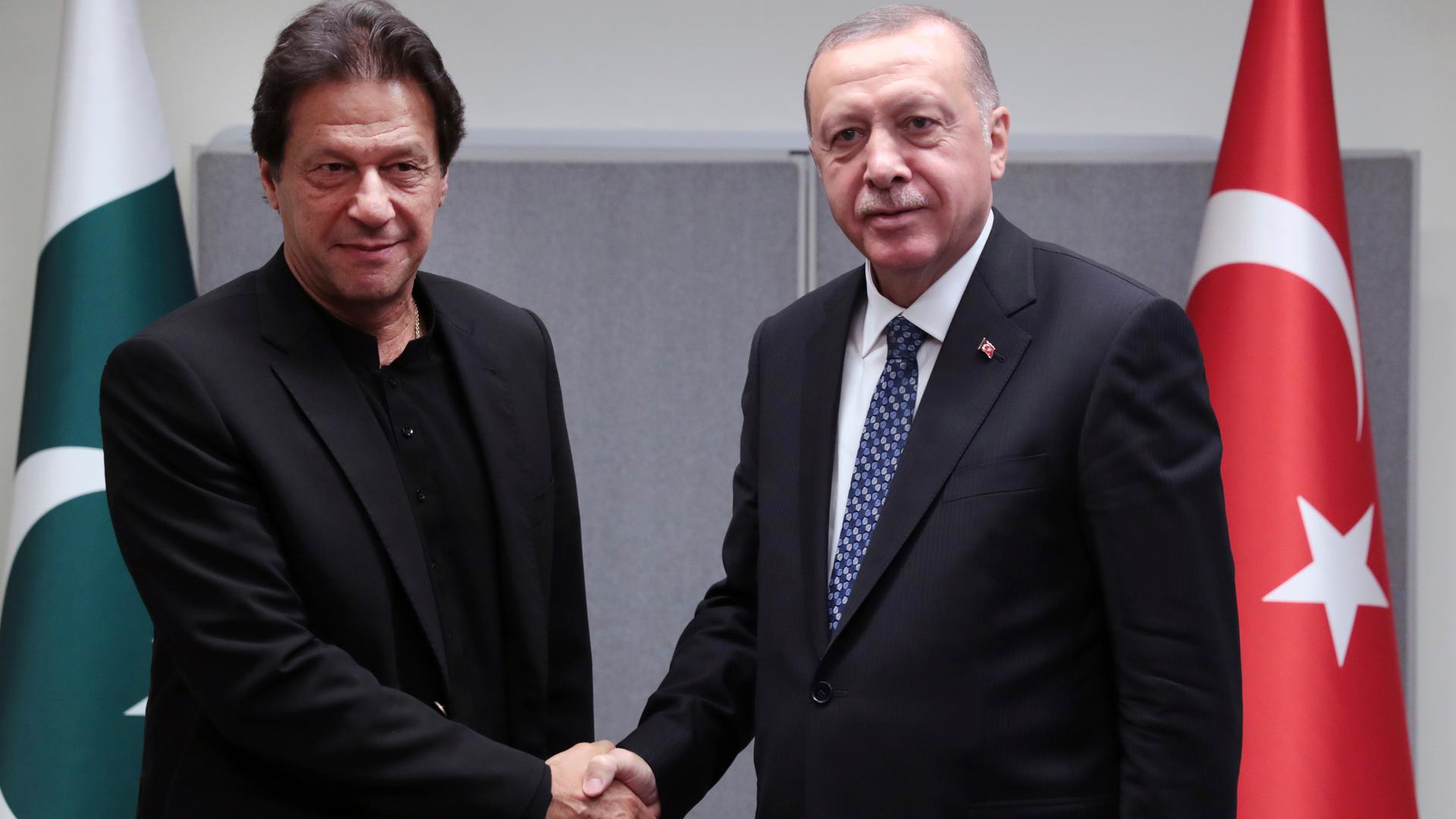Turkish President Erdogan’s visit to Pakistan comes at a testing time for both countries and speaks to the durable nature of the relationship.
Turkish-Pakistani ties go back almost a century, when, during the Khilafat Movement in the 1920s, Muslims living in India and in parts that later became Pakistan, led the effort to pressure the British government after the fall of the Ottoman Empire to preserve the authority of the Ottoman Sultan as the Caliph, or leader, of Muslims worldwide. An offshoot of the Khilafat Movement helped to birth the Pakistan Movement
Turkey and Pakistan were a part of a number of regional blocs during the Cold War and enjoy a flourishing military-to-military relationship. But besides that, Turkey-Pakistan ties are linked to their geo-political importance and shared understanding.
Both countries are part of restive yet dynamic neighbourhoods, with powerful neighbours and ongoing conflicts threatening to spill, and in some cases spilling, into their borders.
Both countries have also had to deal with attempts by other powers to contain their influence, a seemingly natural by-product of their geographical significance. Both have had a colonial power behind a simmering territorial dispute that has become a part of their respective national psyches.
Additionally, both have had to grapple with their identities as Muslim countries, to be able to answer the question: what kind of Muslim country are we? These shared features are a part of, if not the reason behind, the many lessons learned for both countries.
Now, as President Recep Tayyip Erdogan visits Pakistan in February 2020, it is time to apply those lessons. Back in February 2019, Prime Minister Imran Khan chose to go to Davos in the Desert when the murder of Saudi journalist Jamal Khashoggi in a Saudi Consulate in Istanbul was still fresh in the news cycle, in a show of crucial support for the Crown Prince of Saudi Arabia, Mohammad bin Salman (MBS).
Perhaps the fact that Saudi Arabia, along with China, helped Pakistan get past a massive cash crunch that threatened to push the country towards declaring bankruptcy, had a role to play. Given the transactional nature of international relations, this was not entirely unexpected.
Yet, the full price of Saudi support became known at the time of the KL Summit held in Kuala Lumpur in December 2019.
While the Malaysian Prime Minister Mahathir Mohamad described it as congregation of Malaysia, Qatar, Iran and Turkey to “discuss some areas that are possible for us to establish collaborations that will first benefit the nations involved and then taken onto a bigger platform and collaboration to benefit the Muslim world as a whole,” Saudi Arabia read that as a direct attack on the Organization of Islamic Countries (OIC).
The OIC is seen as the primary platform for Muslim countries of which a Saudi national has been the Secretary-General since 2014. According to President Erdogan himself, Pakistan was not able to attend due to pressure from the Saudis.
This visit by President Erdogan to Pakistan — while the invitation was extended in January 2019 when PM Khan visited Turkey — is taking place now in response to changing dynamics within the Muslim world, with the first signs of multipolarity emerging.
For decades, Saudi Arabia has fashioned itself as the de facto leader of the Muslim world with Saudi Kings using the title ‘Custodian of the Two Holy Mosques’.
Previously, Ottoman Caliphs used the title ‘Servant of the Two Holy Mosques’ when they ruled over Makkah and Medinah. Nowadays. The crown prince appears to be more interested in returning Saudi Arabia to ‘moderate Islam’, at times somewhat questionable, than any revered title.
Nevertheless, when it comes to Muslim causes, particularly the Kashmir dispute in the context of Pakistan, Saudi Arabia recently rejected Pakistan’s demand for an urgent meeting on Kashmir, while Turkey has reaffirmed its support for Pakistan on the issue multiple times.
This is as more than eight million Kashmiri Muslims are being stripped of their human rights, including the right to life, identity, movement, and assembly, among others.
Pakistani PM Khan, on a recent visit to Malaysia, vented his frustration: “We have no voice; we are divided. We can’t even agree to hold an OIC meeting on Kashmir.”
Perhaps it should not be surprising then that Saudi Arabia refused visas for an Iranian delegation when it came to discussing US President Donald Trump’s unrealistic ‘Deal of the Century’ for a two-state solution for Palestine and Israel at an OIC meeting in Jeddah.
Saudi actions mirror US actions as the US also did not grant the Iranian foreign minister a visa to speak at the UN headquarters in New York during the US-Iran escalation in January 2020.
The crown prince also enjoys good personal relations with President Trump, often seen with his family members. Hence, Saudi Arabia may not be too bothered by the complaint filed by Tehran against Riyadh for ‘misusing its position as the host country for the OIC headquarters’.
However, as the Iranian official was quick to point out that many countries were accusing Saudi Arabia of “exploiting its host for the OIC to seek its own political interests”, perhaps it was only a matter of time that Saudi Arabia pressured Pakistan to disengage with Turkey on multiple platforms, even going as far as to express displeasure reportedly at Turkish soap operas aired in the country.
Given the current fault lines, President Erdogan’s visit to Pakistan at this time is a true testament to the enduring nature of Turkey-Pakistan ties.
Author: Ravale Mohydin
Ravale Mohydin writes about media effects on society, public diplomacy and non conventional warfare. She is an alumna of Harvard University, the University of Pennsylvania and the Lahore University of Managament Sciences. She currently works at TRT World Research Centre.
Source










Discussion about this post